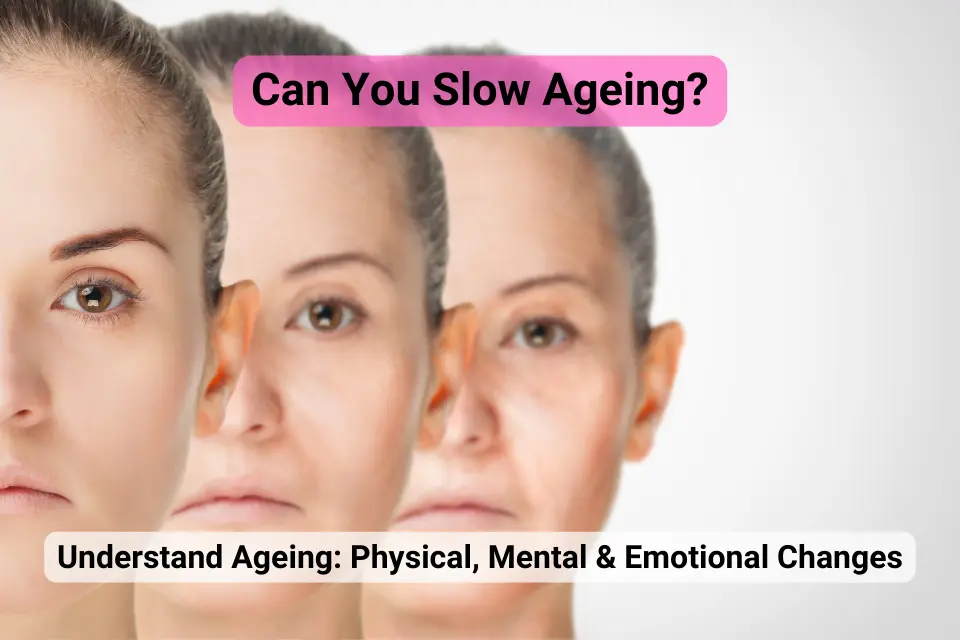Our Remedies:

Understand Ageing Physical, Mental and Emotional Changes
Ageing is a natural process that occurs as we get older, and it can bring many changes to our bodies and minds. For many people, reaching the age of 40 can be a milestone that marks a new phase of life. In this blog, we will explore some of the common changes and challenges that come with ageing after 40, as well as strategies for staying healthy and vibrant as you age.
Physical Changes
As we age, our bodies naturally undergo changes. Some of the most common physical changes that occur after the age of 40 include:
Decreased muscle mass and bone density: As we age, our muscles and bones become weaker and more fragile, which can increase the risk of falls and fractures.
Slowed metabolism: As we age, our metabolism slows down, which can make it harder to maintain a healthy weight.
Changes in vision and hearing: Many people experience changes in vision and hearing as they age, which can make it harder to perform everyday tasks.
Changes in skin elasticity: As we age, our skin loses its elasticity, which can lead to wrinkles and sagging.
Mental and Emotional Changes
Along with physical changes, many people also experience changes in their mental and emotional wellbeing as they age. Some of the most common changes include:
Increased stress: Many people experience increased stress and anxiety as they age, which can have a negative impact on their overall health and wellbeing.
Changes in memory and cognitive function: Some people may experience changes in their memory and cognitive function as they age, which can make it harder to perform everyday tasks and activities.
Increased risk of depression: Older adults are at increased risk of depression, which can be caused by a range of factors, including social isolation, loss of loved ones, and chronic health conditions.
Strategies for Staying Healthy and Vibrant
While ageing can bring many changes and challenges, there are strategies you can use to stay healthy and vibrant as you age. Some of the most effective strategies include:
Eat a healthy diet: Eating a healthy diet rich in fruits, vegetables, whole grains, and lean proteins can help you maintain a healthy weight and reduce the risk of chronic diseases.
Exercise regularly: Regular exercise can help you maintain muscle mass and bone density, improve your cardiovascular health, and reduce the risk of chronic diseases.
Get enough sleep: Getting enough sleep is essential for overall health and wellbeing. Aim for at least 7-8 hours of sleep each night.
Manage stress: Learning how to manage stress through techniques such as meditation, deep breathing, and yoga can help you maintain a healthy mind and body.
Stay socially connected: Maintaining strong social connections can help promote longevity and reduce the risk of age-related cognitive decline. Make an effort to stay connected with family and friends, join social clubs or groups, and participate in activities that bring you joy and fulfillment.
Conclusion
Ageing after 40 can bring many changes and challenges, but it’s important to remember that it’s never too late to start adopting healthy lifestyle habits that can help you age gracefully and with vitality. By eating a healthy diet, exercising regularly, getting enough sleep, managing stress, and staying socially connected, you can help promote healthy ageing and enjoy a vibrant and fulfilling life.
